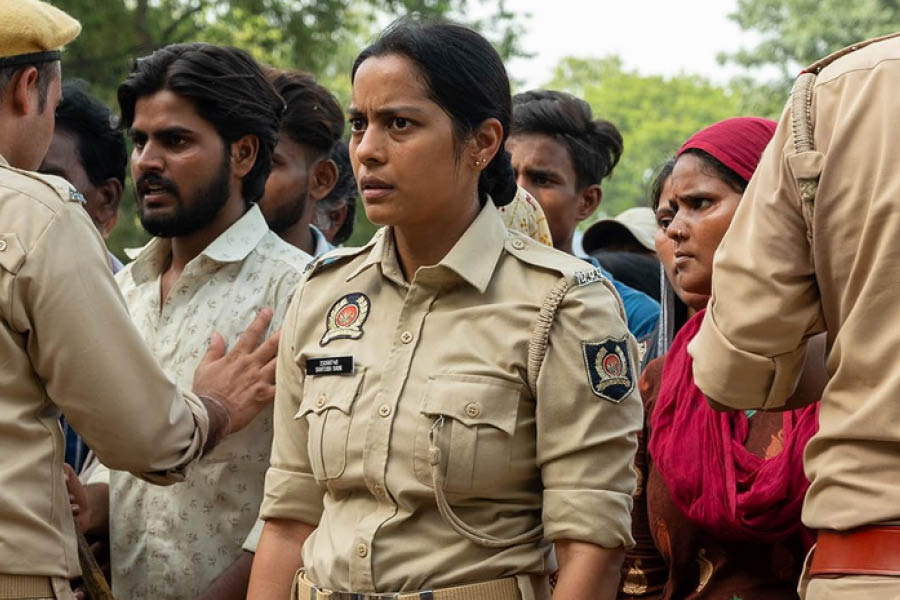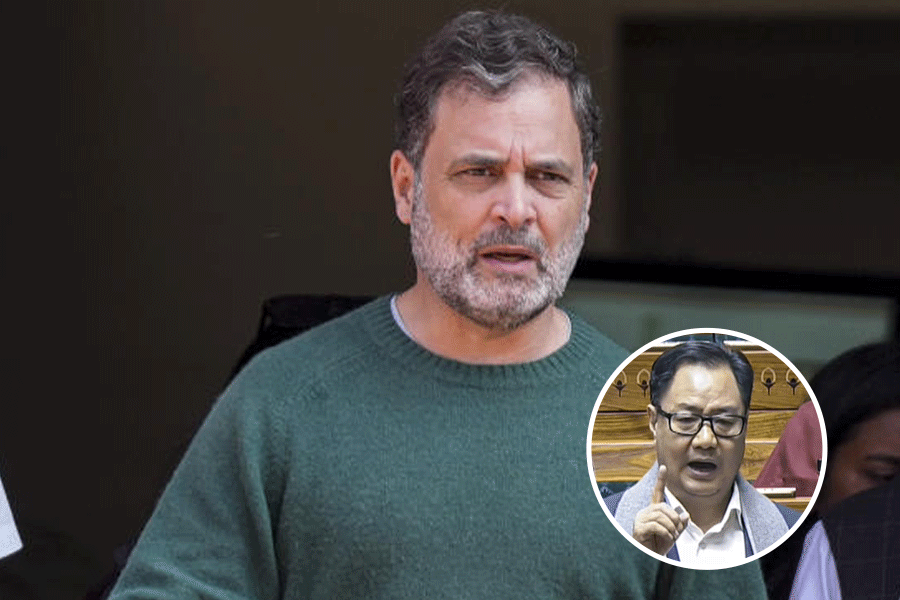The Central Board of Film Certification (CBFC) and makers of Britain’s official Oscars entry Santosh are in disagreement over changes recommended by the Indian film certification body, actress Sahana Goswami said in a statement on Wednesday, hours after her film failed to get clearance for India release.
CBFC stalled the release of Santosh in Indian theatres over concerns regarding its depiction of the Indian police force, UK-based news portal The Guardian has reported.
Shahana Goswami, who plays the titular character, expressed disappointment over the CBFC's decision. “The censor has given a list of changes they require for the film to release and we as a team are not in agreement with the cuts as they would change the film too much, and so it is in a deadlock where it probably won't release theatrically in India,” she said in a statement, as reported by Pinkvilla.
“It's just sad that something that has gone through censor approval at the script level should require so many cuts and changes for it to be considered okay to release in India,” she added.
Written and directed by British-Indian filmmaker Sandhya Suri, Santosh is set in north India and follows the story of a young widow who joins the police force and investigates the murder of a young Dalit girl. The film offers an unflinching portrayal of deep-rooted misogyny, discrimination against Dalits, and the normalisation of mistreatment and torture within the police force. It also addresses issues of sexual violence against lower caste women and the alleged anti-Muslim prejudice in the country.
Santosh received widespread international acclaim following its premiere at Cannes Film Festival 2024. It was the UK's official entry for the Oscars' International Feature category and secured a BAFTA nomination for Best Debut Feature this year.
Sandhya Suri, the film’s writer and director, described the CBFC’s decision as “disappointing and heartbreaking”. “It was surprising for all of us because I didn’t feel that these issues were particularly new to Indian cinema or hadn’t been raised before by other films,” she said.
The CBFC reportedly provided a long list of changes, which Suri described as "impossible" to implement. While legal restrictions prevented her from sharing the specifics, she indicated that the list spanned several pages and included concerns over themes related to police conduct and societal issues embedded in the film.
“It was very important to me that the film is released in India so I did try to figure out if there was a way to make it work,” Suri explained. “But in the end, it was just too difficult to make those cuts and have a film that still made sense, let alone stayed true to its vision,” Suri told The Guardian.
“Maybe there’s something about this film which is troubling in that everybody is morally compromised and there is no single hero,” she said. “I think that’s what might set it apart from other stories in Indian cinema which often show a maverick cop in a rotten system,” she added.










